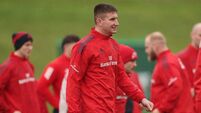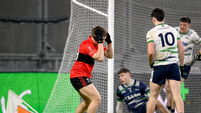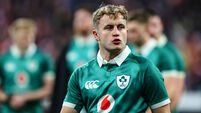Richard Thornton on the role of ‘guided discovery’ in Kilcoo's success

Richard Thornton. Photo by Oliver McVeigh/Sportsfile
Of all the storylines drawn from the well of Tyrone’s All-Ireland breakthrough in 2003, there is an interesting subplot still left to be told; those left behind.
That band includes Richard Thornton. When Mickey Harte was gobbling up underage All-Irelands with Tyrone, Thornton was another diamond shining bright among the Brian McGuigans, Stephen O’Neills, and Owen Mulligans.














